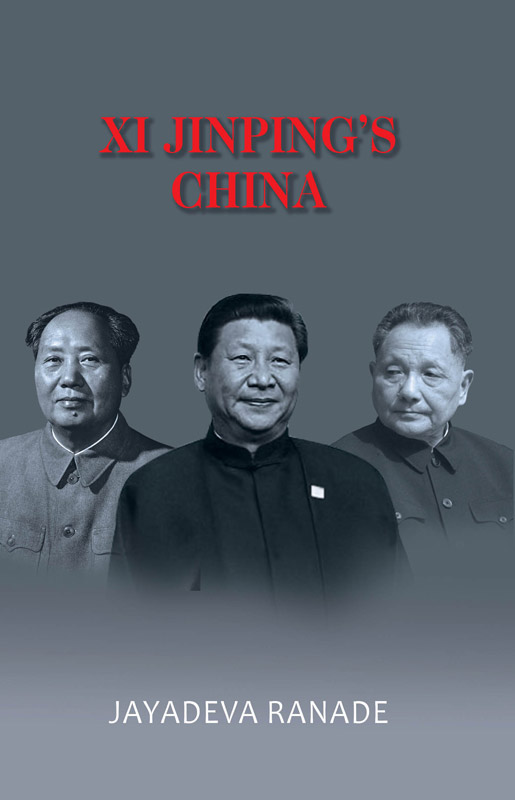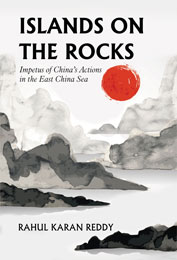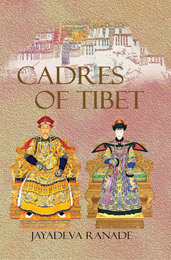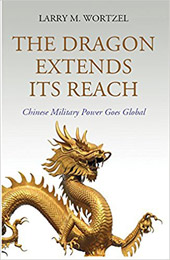The book examines how since his appointment to China’s three top posts – simultaneously for the first time in 30 years – Xi Jinping has deftly used ideology and nationalism to accumulate power and ensure the Chinese Communist Party (CCP)’s legitimacy and monopoly on power. Xi Jinping has imposed progressively stricter domestic measures leading to the steady hardening and inflexibility of the Chinese state.
It looks at the reforms in the Party, Government and Military and the unprecedentedly sustained and bruising drive against corruption in the People’s Liberation Army (PLA). In the process, Xi Jinping has eliminated political rivals and whittled down opposition to the most extensive and far reaching reforms the PLA has witnessed in its 90 years. Developments related to Tibet are especially analysed.
The book analyses China’s ‘One Belt, One Road’ – now called the ‘Belt and Road Initiative’ – and the China-Pakistan Economic Corridor initiatives, intended to alter its strategic environment and expand power and influence well beyond its borders and up to Europe. It concludes that China will squeeze the strategic space of its neighbours.
China’s rise and bid to establish itself as the dominant power in the Indo-Pacific, however, will not be uncontested. India, Japan and the USA’s response will be important.
Jayadeva Ranade
JayadevaRanade, is President of the ‘Centre for China Analysis and Strategy’. He retired as Additional Secretary, Cabinet Secretariat, Government of India in August 2008 and was later appointed as Member of the National Security Advisory Board (NSAB). He is a Member of the Core Group on China of the Indian Council of World Affairs (ICWA); Distinguished Fellow at the Institute for Peace and Conflict Studies (IPCS), New Delhi; and Distinguished Fellow at the Centre for Air Power Studies (CAPS), New Delhi.
JayadevaRanade has specialised for over 40 years in the analysis of developments relating to China, Tibet and East Asia, and strategic issues relevant to India. He has prepared and finalised briefs, including political and risk analyses, on sensitive issues for the highest echelons in Government.
He obtained a Diploma of Advanced Proficiency in Chinese from the Jawaharlal Nehru University, New Delhi and a Diploma in Mandarin from the University of Hong Kong.
In the course of his 35-year career, JayadevaRanade has been posted to Diplomatic Missions in areas strategically important for India, including Hong Kong, Beijing and Washington DC.
He was conferred both the highest awards of the Organisation out of turn.
JayadevaRanade is author of the book China Unveiled: Insights into Chinese Strategic Thinking, released in January 2013. He regularly contributes articles to leading Indian newspapers and defence and strategic publications. He often speaks at international conferences and on national and international Television channels.
Contents
Acronyms
1. China’s Next Chairman–Xi Jinping
2. Xi Jinping’s Leadership Style and China’s Likely Policy Direction
3. The Bo Xilai Affair
4. China’s Eighteenth Party Congress: Trends and Analysis
5. China’s New Leadership: Internal and External Implications of a Fresh Agenda
6. China’s New Central Military Commission after the 18th Party Congress and its Implications
7. Chinese Communist Party, Army and Eighteenth Central Committee
8. Impact of Leadership Changes in China on Security and Defence Fields in the Country
9. China’s New Development Strategy: Emphasising Domestic Consumption, Human Resources and R&D
10. China’s Twelfth National People’s Congress:An Analysis of the Composition and Content
11. Third Party Plenum
12. China: The Fifth Plenum of the 18th CCP CC (October 26-29, 2015)
13. China’s Sixth Plenum Designates Xi Jinping as “Core” of the Leadership
14. China: Document Number 9 and the New Propaganda Regime
15. China’s Defence White Paper 2013
16. China’s Defence White Paper 2015
17. Xi Jinping and China’s Major Military Reforms–2015
18. Major Structural Reforms in PLA: Brief Initial Assessment
19. PLA Reform, Reorganisation, Restructuring and Implications for India
20. China’s Focus on Military Activities in Tibet
21. China in Transition
22. The 19th Congress of the Chinese Communist Party
23. Xi Jinping’s Power Base
24. 18th CC Members
25. China’s New Policy of Peripheral Diplomacy
26. Geopolitical Developments and India-China Relations
27. Q&A-Wall Street Journal
28. Nathu La and the Sino-Indian Trade: Understanding the Sensitivities in Sikkim
29. Looking Beyond Border Incursions & Li Keqiang’s Visit
30. India and China: An Assessment of October 2013 Agreements—No Tangibles
31. The Second Modi-Xi Jinping Summit
32. Brief Analysis of Chinese Official Media Reporting on Prime Minister Modi’s Visit to China
33. China’s Belt and Road Initiative: Indian Perspective
34. The Future of China-Pakistan Relations
35. Upgraded Sino-Pak Relationship Increases Pressure on India
36. Implications of the China-Pakistan Economic
37. Does the China-Pakistan Economic Corridor Really Help Pakistan?
38. China, Tibet and Beijing’s New Thinking
39. China’s New Initiatives on The Tibet Issue
40. China’s “Big Two” Sessions Signal Policy Shift on Dalai Lama
41. China’s New Appointments and the New Tibet Party Secretary
42. China’s Ambitions in the Asia-Pacific
43. Beijing’s Strategies Towards South China Sea
44. China-South Korea Presidential Summit: Fait Accompli?
45. China Articulates Sharp Suspicions about US Intentions
46. The Xi Jinping-Obama Submit
47.Chinese President Xi Jinping’s First State Visit (September 23-28, 2015) to USA


 Political Science
Political Science



